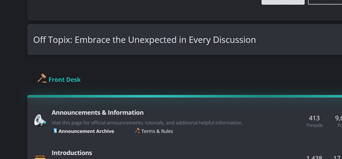- Thread Author
- #1
I think as freelancers, we all know how important it is to keep improving our skills and staying on top of our game. And by doing that, we want to gain proper, constructive feedback on our designs. Doesn't matter if you're a pro that's been designing for decades or if you're just starting out, feedback helps us see our work from different perspectives and shows us the areas for improvement. Here are some friendly tips on how to get valuable feedback on your designs:
Build a reputation and never stop delivering top-notch work. So, go ahead and put yourself out there – your next great idea might just come from a piece of feedback you receive!
Feel free to share your experiences and tips on getting feedback in the comments below.
1. Ask Your Clients
Your clients are the ones who will be using your designs, so their feedback is crucial of course. After delivering a project, ask them for their honest thoughts. Be open to constructive criticism and use it to make your future projects even better. Remember, happy clients are more likely to recommend you to others!2. Join Design Communities
There are plenty of online communities where designers hang out, like Behance, Dribbble, and various Facebook groups. Share your work there and ask for feedback. You'll get insights from other designers who understand the art you produce and are likely to offer useful suggestions.3. Peer Reviews
As a designer, you're most likely surrounded with like minded friends, ask them to review your work. Peer reviews can be incredibly insightful because your peers might notice things you’ve overlooked. A better font, filter or gradient. Plus, it's a great way to build stronger professional relationships.4. Use Social Media
Platforms like Instagram, Twitter, and LinkedIn are perfect for showcasing your designs and getting feedback. Share your work and encourage your followers to comment with their thoughts. The more you engage with your audience, the more feedback you'll receive.5. Be Open and Receptive
I know it's not always fun to hear feedback you don't want to hear, but remember that feedback is meant to help you grow. Stay open-minded and take every comment as an opportunity to improve. Not all feedback will be useful as some don't know the concept of being constructive, but learning to sift through and apply the valuable bits is a skill in itself.6. Reflect on the Feedback
Once you've gathered that precious, valuable feedback, take some time to reflect on it. Look for common themes or suggestions and think about how you can integrate them into your work. Continuous improvement is key to becoming a better designer.Build a reputation and never stop delivering top-notch work. So, go ahead and put yourself out there – your next great idea might just come from a piece of feedback you receive!
Feel free to share your experiences and tips on getting feedback in the comments below.


